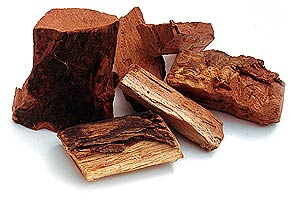You either love mesquite or hate it, depending on whether or not you’re a farmer, hunter, cook, rancher, or woodworker. Farmers and ranchers hate the tree, of course, because it chokes out needed grazing grass, and, as a result of its extensive root system, is nearly impossible to remove from pastures. The ranchers, however, were at least partially responsible for the spread of mesquite over fifty-five million acres in Texas because their cattle passed the mesquite seeds through their digestive systems unharmed, and deposited them in a perfect natural fertilizer!

Yes, mesquite is tenacious, and it’s thorns can puncture tires. That’s the bad side. The good side is that the tree prevents erosion, and it forms a microhabitat for birds and animals in an otherwise harsh environment. A clump of mesquite trees provides shade, humidity, and food for such animals as doves, deer, javelina, and rabbits, which is why hunters like the tree. The tree, being a legume like peanuts, is nitrogen-fixing, so it serves as a host tree for other wild plants such as chiltepins.
The mesquite beans, which are sugar-rich, provide food for both animals and man, and it once provided up to forty percent of the food in the diet of Native Americans in Texas. The wood of the tree is variously shaded, which is why woodworkers love it for making scultures, gunstocks, parquet floors, and other hardwood products.
Cooks love mesquite because its wood produces a very hot flame which is great for grilling steaks. Most mesquite trees these days are being cut down for wood chips and to make charcoal, but there’s such an abundance of trees that there is no threat to mesquite. Find out more on wood for smoking.
Latest posts by Mark Masker (see all)
- 2024 Scovie Awards Call for Entries - 07/07/2023
- 2024 Scovie Awards Early Bird Special: 3 Days Left - 06/29/2023
- 2024 Scovie Awards Early Bird Deadline Looms - 06/25/2023






